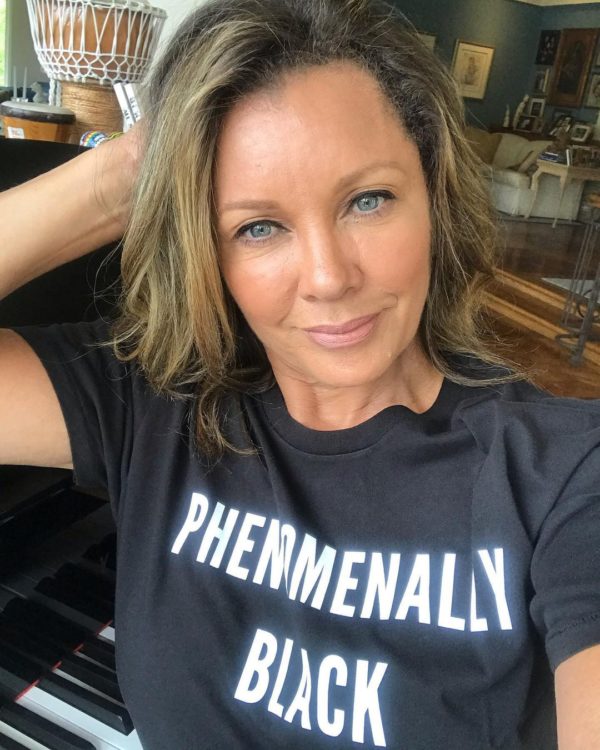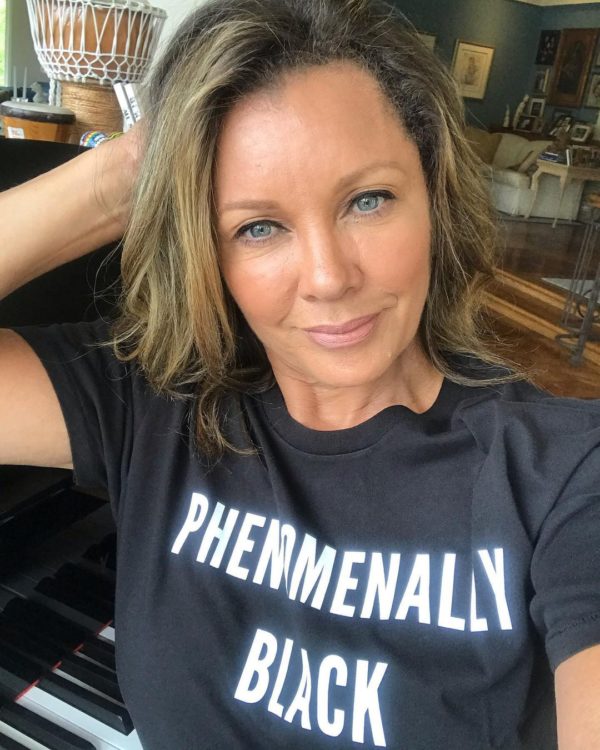Vanessa Williams Says She Received Hate Mail From People Who Said She Wasn’t ‘Black’ Enough for Miss America
Vanessa Williams earned her place in the history books when she was the first woman of African-American descent to be crowned Miss America in 1983. While it was a watershed moment for beauty pageants, and a pivotal moment in her life, Williams’ race was instantly a hot-button topic that everyone had an opinion about.
“I was not seen as a 20-year-old, who is a junior in college,” she said on the A&E podcast The Table Is Ours. “I was seen as a symbol, but also seen as a Black woman, and [I was] also seen as someone who was supposed to represent the American beauty.”

Unfortunately, her victory was met with racist comments and even intimidation from those who believed she should not have been crowned.
“And there are a lot of folks that did not believe that having brown skin and being a Black woman represented the Miss America ideal,” Williams added.
There was so much concern over her safety that “sharpshooters” were recruited for her homecoming parade.
“There were sharpshooters on the top of [the] roofs of my hometown, just because of the threats that were against me because of who I was,” she said. “I had death threats.”
However, Williams said it was the dismissive comments from the Black community that hurt her the most.
“Not only was I getting attacked from white folks saying she doesn’t represent us, but some Black folks [said], ‘Oh they only picked her cause she’s [light-skinned and has] light eyes,’” Williams recalled. “[They] kind of dismissed my talent, my intellect, and my achievement. So that was probably more hurtful.”
“It was like, but my own people, it’s still not good enough, are you kidding me?”
A 1983 issue of Essence of which Williams graced the cover, pointedly addressed that issue in the chronicling of her rise to fame. The magazine interviewed Dr. Alvin Poussaint, associate professor of psychiatry at Harvard Medical School, who stated, “Until you get a Miss America with Negro features, I don’t think you can say color was irrelevant to her selection.” They then quoted a Washington Post columnist who wrote, “Williams’ victory serves only as a bittersweet confirmation that the lighter your skin, the better your chances of being accepted.”
When asked for her response, Williams was noticeably upset, and described as “disheartened.”
“I have achieved this so why can’t they give me credit?” she asked. “That really irks me, and that’s the only time I’ve lost my cool so far — when I’ve heard people say, ‘Well, you really won because you aren’t Black-looking.’ … I don’t know what the ideal Black woman looks like; I don’t think there is an ideal anything.”
In a People article from 1989, she recalled the shock and dismay she felt at receiving hateful letters from Black people who diminished her achievement because of her appearance.
“I was getting hate mail from white people who hate Black people and mail from Black people who said, ‘You’re not really Black, because you don’t look Black.’ I expected mail from the KKK and other psycho groups but not from the Black community,” she said.
“I went on some talk shows where women would say, ‘The only reason you won is because you have green eyes and light skin.’ I didn’t like having my accomplishments negated because of the way I looked. That was harder to live with than anything else.”
Williams went on to face other difficulties during her reign as Miss America, most notably, being forced to give up her title in 1984 after Penthouse published nude photos of her in a photo shoot with another woman without her permission.
Some 31 years later, Williams returned to the pageant as a judge and got an emotional, face-to-face apology from then-Miss America CEO Sam Haskell for what had transpired in the incident.
She has since gone on to establish a successful career as both a singer and actress, and has come to terms with who she is and what she has accomplished.
She further explained on “The Table is Ours” by saying, “Obviously, I opened the door. And it was my talent and my intelligence that got me chosen to represent America.”

